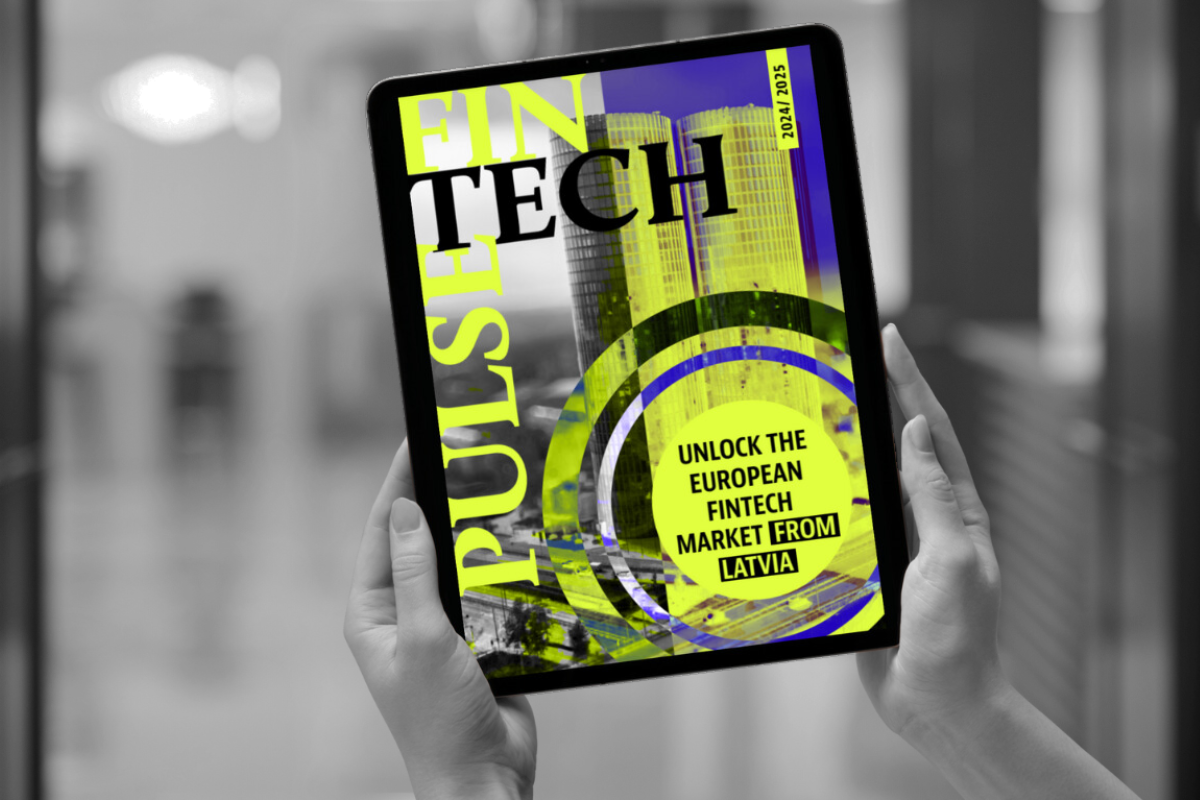Fintech
Soligenix, Inc. COVID-19 Vaccine Candidate, CiVax, Could Be a More Viable Alternative to Moderna and Pfizer

New York, New York–(Newsfile Corp. – December 9, 2020) – The COVID-19 pandemic has been one of the most significant “black swan” events in recent history. As of early December 2020, around 1.5 million people globally have died from the coronavirus, including over 274,000 deaths in the United States. At the same time, millions of people have lost their jobs, businesses, and other income sources. The only way to truly recover from this pandemic is from widespread vaccination and continued adherence to social distancing, hand-washing, and other preventative measures.
Pfizer and Moderna are two of the most hyped companies that are developing coronavirus vaccines. Both vaccines are said to show effectiveness greater than 90% in protecting the individual from severe coronavirus symptoms.
However, with both the Pfizer and Moderna vaccines, there remain numerous safety and efficacy questions, as well as the looming logistical nightmare of storage. Soligenix, Inc. (NASDAQ: SNGX) is one company that is developing a coronavirus vaccine candidate that may have the answer to several of these issues.
Questions Surround Moderna & Pfizer Vaccines
Moderna and Pfizer are just a couple of biotechnology companies that are developing vaccines to help combat the pandemic. Their efforts and ability to churn out a viable vaccine in record time is extremely meaningful and an important milestone in medicine.
New Vaccine Technology
However, both companies are utilizing a new vaccine technology, which has not undergone long-term safety and efficacy testing. There has never been a vaccine approved using mRNA technology.
Using synthetic mRNA technology, the Moderna and Pfizer vaccines seek to activate an immune response against the coronavirus. Early clinical study data show that both vaccines have effectiveness above 90%. The important factor to understand is that these vaccines have effectiveness in preventing the vaccinated individual from experiencing severe COVID infection. However, it may not protect against that same vaccinated individual from still carrying and transmitting the virus to others. To make matters worse, those receiving mRNA-based vaccines will need two shots several weeks apart.
mRNA Vaccine Storage Logistical Nightmare
Another issue with these mRNA vaccines is that they must be kept at -94 degrees Fahrenheit or below and they do not have a long shelf-life once it is removed from its freezer storage. According to Time Magazine, the Pfizer vaccine can only last for roughly five days once they are removed from cold storage and placed into a standard refrigerator.
Even the most prestigious hospitals and healthcare organizations, such as the Mayo Clinic, do not currently have the storage ability to keep these vaccines at such a cold temperature. If the Mayo Clinic does not have the proper storage, count on your local pharmacy and clinics not having the right storage either. This is going to require massive cold storage upgrades that will carry a hefty cost.
Also consider that UPS, FedEx, and any other transportation companies tasked with shipping out the vaccines will have to upgrade their trucks and buy up large amounts of dry ice, which also happens to be in short supply right now.
The strict storage requirements almost certainly ensure that developing countries will likely not be able to utilize the Pfizer or Moderna vaccines. According to the Borgen Project, 166 countries are considered part of the developing world, with 52 of those countries located in Africa. To defeat the pandemic, all countries will need to have access to the vaccine.
Soligenix’s CiVax is Next-Gen Without the Logistical Headaches
Soligenix may not be receiving the same press attention as Pfizer or Moderna, but its COVID vaccine candidate is equally-if-not-more impressive. CiVax’s potential is unappreciated when considering the vaccine can be kept at room temperature, may only require one shot, and is based on a vaccine technology that has a history of tested safety and efficacy.
CiVax is Subunit Vaccine Focused on Th1 Antibody Response
CiVax is a subunit vaccine and thus does not use a live or dead virus. Subunit vaccines are derived from the proteins or glycoproteins of a virus. These proteins are the key components in producing a protective immune response.
Subunit vaccine technology already has a history of safety and, unlike mRNA technology, has already been approved by the U.S. FDA. The hepatitis B vaccine was the first subunit vaccine to be approved within the United States.
“Subunit vaccines are considered to be promising candidates for developing immunizations against malaria, tetanus, human cytomegalovirus, Salmonella enterica serovar Enteritidis infections, and even the novel severe acute respiratory syndrome coronavirus 2,” according to News Medical.
However, do not assume that CiVax is the typical subunit vaccine. CiVax has shown an ability to stimulate Th1 antibody responses. Th1 antibodies have proven to be effective to treat SARS and MERS, two closely related viruses to COVID-19. Assuming the Th1 antibody responses can be consistently produced against the new novel coronavirus, it could be likely that CiVax has similar effectiveness as the Pfizer or Moderna vaccines.
CiVax Shows Antibody-Neutralizing and Cell Immunity Abilities in One Shot
CiVax is seemingly superior to the Pfizer and Moderna vaccines because it has shown the ability to neutralize antibodies and produce cell immunity. Both of these factors are widely considered to be the key to developing a necessary and meaningful immune response.
Unlike the mRNA vaccines, CiVax showed these abilities after just one vaccination, rather than dealing with the need to obtain two shots over a specific period.
CiVax Can Be Stored At Room Temperature, Viable For Global Use
As discussed previously, the Moderna and Pfizer vaccines will seemingly only help developed countries that can upgrade cold storage capabilities. This means developing countries will be put at an extreme disadvantage.
With CiVax, there is no need for expensive cold storage upgrades. The vaccine is thermo-stabilized and thus can be stored at room temperature without losing potency. This makes CiVax far more viable not only for use in the developed world but also in the developing world.
Overall, a COVID-19 vaccine is required if the world is ever going to get back to any type of normality. However, the mRNA vaccines, such as those used in Pfizer’s and Moderna’s vaccines, seem to have lingering questions and concerns that will not be answered until it’s too late. The long-term safety and potential efficacy issues will likely not be discovered until millions or even billions of people have already been vaccinated.
Soligenix’s CiVax aims to provide a little more certainty and familiarity with the COVID vaccine arena. By using subunit vaccine technology with an established track record of safety and efficacy, CiVax could help provide ease to those that are concerned about the unknowns of the mRNA technology. The thermostabilized nature of CiVax is a win-win-win for patients, hospitals, and shippers, who will not have to rely on expensive cold storage upgrades, vaccine shelf-life, and potency worries. Also, the thermostabilized state of CiVax makes this a win for developing countries and thus gives life to the initiative of vaccinating the world against the COVID pandemic.
Disclaimer
This communication was produced by PCG Digital Holdings, LLC, and affiliate of PCG Advisory Inc., (together “PCG”). PCG is an integrated investor relations, communications and strategic advisory firm. The information contained on this may be ‘Paid Advertising’ for purposes of Section 17(b) of the Securities Act of 1933, as amended (together with the rules and regulations there under, the “Securities Act”). PCG may be compensated by respective clients for publicizing information relating to its client’s securities. For more information in terms of compensation received for services provided by PCG, see the pertinent advertising materials relating to the respective client. By accessing this Site and any pages thereof, you agree to be bound by the Terms of Use and Privacy Policy.
PCG is not a registered or licensed broker, dealer, broker-dealer, investment adviser nor investment manager, nor does PCG engage in any activities that would require such registrations. PCG does not provide investment advice, endorsement, analysis or recommendations with respect to any securities, and its services to or statements about its clients should never be construed as any endorsement of or opinion about any security of any client. No information contained in this communication constitutes an offer to sell, a solicitation of an offer to buy, or a recommendation of any security or any other similar product or service regardless of whether such security, product, or service is referenced in this communication. Further, nothing in this communication is intended to provide tax, legal, or investment advice and nothing in this communication should be construed as a recommendation to buy, sell or hold any investment or security or to engage in any investment strategy or transaction. For full disclaimers, including compensation received for professional services, please visit www.pcgadvisory.com/disclosures.
PCG Digital – [email protected]
Fintech
Fintech Pulse: A Daily Dive into Industry Innovations and Developments

The financial technology sector continues to evolve at a rapid pace, offering innovations that disrupt traditional paradigms. Today’s briefing underscores fintech’s diverse growth avenues: from substantial venture capital plays and strategic partnerships to groundbreaking implementations in lending. Here’s a closer look at recent developments shaping the landscape.
Synapse’s Comeback and Andreessen Horowitz’s Strategic Bet
Source: Axios
Synapse, a financial infrastructure company previously embattled by controversy, is staging a remarkable comeback, backed by none other than venture capital heavyweight Andreessen Horowitz (a16z). With this new infusion of funds, Synapse aims to consolidate its position as a premier platform for building financial services tools.
This resurgence demonstrates the resilience of the fintech ecosystem, where innovation often prevails over turbulence. Synapse’s renewed vigor also signals that top-tier investors remain bullish on infrastructural solutions pivotal to the future of digital finance. Andreessen Horowitz’s participation not only validates Synapse’s model but also underscores the VC giant’s enduring interest in fintech infrastructure, even amid global economic uncertainties.
Analysis:
This partnership exemplifies the dynamism within fintech, highlighting the interplay of innovation, capital, and resilience. It also raises questions about the broader implications of giving second chances to firms with turbulent histories. While Synapse’s evolution could inspire others, it also places a spotlight on governance and accountability in high-growth sectors.
Israel’s Fintech Scene Gets a Boost with Investment in Finova Capital
Source: Calcalistech
Israeli fintech startup Finova Capital has raised an impressive $20 million in a funding round led by prominent institutional investors. This marks a significant milestone for the company as it seeks to expand its suite of financial solutions aimed at underserved markets.
Israel’s fintech ecosystem has long been recognized as a hub of innovation, and this latest investment only reinforces its global standing. Finova Capital’s focus on empowering smaller businesses and fostering financial inclusivity aligns with emerging trends where tech-driven solutions bridge critical gaps in financial services.
Analysis:
With this funding, Finova is poised to enhance its technological offerings while contributing to economic inclusion. However, the broader fintech industry will watch closely to see how the company leverages this capital amid increasing competition from regional and global players.
India’s Yubi Plans a Fundraising Push
Source: Bloomberg
Yubi, a prominent Indian fintech platform backed by Insight Partners, is reportedly preparing for a new fundraising round. Having already established itself as a leader in credit infrastructure, Yubi aims to bolster its offerings and expand its market footprint.
India’s fintech landscape is witnessing explosive growth, with platforms like Yubi playing a critical role in the credit ecosystem. Yubi’s planned fundraising reflects the broader appetite for scaling solutions that streamline credit access, particularly in emerging markets where traditional lending models often fall short.
Analysis:
This development highlights two key trends: the increasing reliance on credit platforms in high-growth economies and the strategic role of international investors like Insight Partners in driving fintech innovation. Yubi’s expansion plans could set a precedent for other regional fintech players seeking to scale amid global economic headwinds.
Provenir and Hastings Financial Services Win Global Recognition
Source: Business Wire
In a testament to the transformative power of digital lending solutions, Provenir and Hastings Financial Services have been jointly recognized for the Best Digital Lending Implementation at the IBSi Global Fintech Innovation Awards. This accolade underscores the success of their collaboration in modernizing the lending process through cutting-edge technology.
Provenir’s advanced decision-making platform and Hastings Financial Services’ lending expertise have delivered a solution that significantly enhances user experience, operational efficiency, and risk management. Such innovations highlight the increasing role of partnerships in advancing fintech’s digital transformation.
Analysis:
This recognition not only validates the efficacy of digital lending but also emphasizes the importance of partnerships in driving innovation. It signals to the industry that collaboration can be a powerful tool for staying ahead in a rapidly evolving marketplace.
Microf and Quantum Financial Technologies Forge New Alliances
Source: PR Newswire
Microf, a financial solutions provider, has announced a strategic partnership with Quantum Financial Technologies. This collaboration aims to expand lending solutions for contractors, providing streamlined access to capital for businesses in need of flexible financing options.
This partnership is a timely response to the growing demand for specialized financial products in niche markets. By leveraging Quantum’s technology, Microf can now offer more tailored solutions, particularly to contractors navigating complex financial requirements.
Analysis:
This development reflects a growing trend: the diversification of fintech offerings to serve specific market segments. As competition in mainstream fintech intensifies, targeting underserved niches could become a defining strategy for success.
Key Takeaways for the Fintech Ecosystem
- Resilience in Fintech Funding: Despite economic uncertainties, venture capital continues to fuel innovative fintech players like Synapse and Finova Capital.
- Regional Growth Stories: From Israel to India, fintech ecosystems are thriving, attracting global attention and investment.
- Collaboration as a Catalyst: The success of partnerships like Provenir-Hastings and Microf-Quantum underscores the importance of strategic alliances.
- The Power of Recognition: Awards like the IBSi Fintech Innovation Awards validate industry achievements, inspiring others to push the envelope.
- Focus on Inclusion: Whether through credit platforms or lending solutions, fintech is playing a pivotal role in fostering financial inclusivity worldwide.
Looking Ahead: Challenges and Opportunities
The fintech sector’s journey is far from linear. Regulatory complexities, technological disruptions, and market volatility remain persistent challenges. However, as seen in today’s developments, the opportunities far outweigh the risks. By prioritizing innovation, collaboration, and inclusivity, fintech players can navigate the complexities of the global financial landscape.
This moment in fintech history is pivotal. It’s a time for bold decisions, strategic partnerships, and a commitment to bridging financial divides. As industry players rise to the occasion, the road ahead promises a future where technology and finance intertwine to empower individuals and businesses alike.
The post Fintech Pulse: A Daily Dive into Industry Innovations and Developments appeared first on News, Events, Advertising Options.
Fintech
Fintech Latvia Association Releases Fintech Pulse 2024: A Guide to Latvia’s Growing Fintech Hub

The Fintech Latvia Association has launched the latest edition of its annual publication, Fintech Pulse 2024, unveiling insights and resources that position Latvia as a thriving hub for European fintech.
Announced at this year’s Fintech Forum, the magazine is now available in digital format, offering a comprehensive guide for fintech professionals and entrepreneurs navigating the Latvian market and exploring its advantages.
This issue covers essential topics, from support tools provided by Latvijas Banka and newcomer roadmaps to Riga’s investor resources and fintech education opportunities. Readers will find the latest fintech news from Latvia, coverage of this year’s key industry events, and member insights on the future of fintech. The Fintech Landscape section provides a comprehensive overview of the Latvian fintech ecosystem.
Tina Lūse, Managing Director of Fintech Latvia Association, expressed excitement about the ecosystem’s growth: “We are excited to unveil the third annual edition of Fintech Pulse. This year has been pivotal for our ecosystem, and together with public sector stakeholders, we are enhancing financial inclusion, democratizing investments, and driving innovation throughout the sector. This is a testament to Latvia’s emergence as a fintech hub, establishing itself as an equal partner in innovation and support within the Baltic region.”
Minister of Finance Arvils Ašeradens highlighted Latvia’s fintech potential in the magazine, stating: “Latvia has already made strides in adapting its regulatory framework to support a stable financial system. Now, we encourage financial market players to invest in modern technologies to meet the growing demand for inclusive financial services and solidify Latvia’s position in the fintech landscape. We are confident that with the combined offer of the government, Latvijas Banka and Riga city, we are a great place to start your next scalable European FinTech!”
Minister of Economics Viktors Valainis expressed Latvia’s ambition in the magazine, stating: “Latvia wants to become a WEB 3.0. innovation hub and solidify itself as one of the leaders of a newly regulated EU crypto-asset market. We welcome international companies to choose Latvia, a flexible and fast-paced country, where you can obtain a MICA license in just 3 months. Open your office in Latvia, receive a MICA license and serve the whole EU market!”
The Fintech Latvia Association brings together fintech and non-banking financial service providers to represent their interests at both the national and international levels. It promotes sustainable development in Latvia’s financial sector by fostering reliable, responsible, and long-term industry practices that earn trust from consumers and regulatory authorities. The association is committed to supporting innovation and growth opportunities within the fintech landscape.
The post Fintech Latvia Association Releases Fintech Pulse 2024: A Guide to Latvia’s Growing Fintech Hub appeared first on News, Events, Advertising Options.
Fintech
Quantum Security and the Financial Sector: Paving the Way for a Resilient Future

The World Economic Forum (WEF) has released a pivotal white paper in collaboration with the Financial Conduct Authority (FCA), titled “Quantum Security for the Financial Sector: Informing Global Regulatory Approaches”. This January 2024 publication underscores the urgent need for global cooperation as the financial sector transitions from a digital economy to a quantum economy, highlighting both the immense opportunities and cybersecurity challenges posed by quantum computing.
Quantum: A Double-Edged Sword for Finance
Quantum computing offers transformative benefits for the financial sector, such as accelerated portfolio optimization, enhanced fraud detection, and improved risk management. Yet, it simultaneously threatens the very foundation of cybersecurity. With quantum’s ability to break traditional encryption methods, sensitive data and financial transactions face significant risks. The white paper warns that such vulnerabilities could erode trust in the financial system and destabilize global markets.
The urgency to prepare is evident, with some quantum threats, such as “Harvest Now, Decrypt Later” attacks, already emerging. Governments and regulators, including the United States with its National Security Memorandum on Quantum (2022), have begun advocating for quantum security readiness by 2035. However, as noted in the paper, transitioning to a quantum-secure infrastructure is a monumental task requiring unprecedented coordination between regulators, industry leaders, and technology providers.
A Collaborative Framework: Four Guiding Principles
To address the complex challenges posed by quantum technologies, the WEF and FCA have proposed four guiding principles to inform global regulatory and industry approaches:
- Reuse and Repurpose: Leverage existing regulatory frameworks and tools to address quantum risks, rather than creating entirely new systems.
- Establish Non-Negotiables: Define baseline requirements for quantum security, ensuring consistency and interoperability across organizations and jurisdictions.
- Increase Transparency: Foster open communication between regulators and industry players to share best practices, strategies, and knowledge.
- Avoid Fragmentation: Prioritize global collaboration to harmonize regulatory efforts and avoid inconsistencies that could burden multinational organizations.
These principles aim to create a unified, forward-looking strategy that balances innovation with security.
A Four-Phase Roadmap for Quantum Security
The white paper introduces a phased roadmap to help the financial sector transition toward quantum security:
- Prepare: Raise awareness of quantum risks, assess cryptographic infrastructure, and build internal capabilities.
- Clarify: Formalize engagement between stakeholders, map current regulations, and model the cost and complexities of transitioning to quantum-safe systems.
- Guide: Address regulatory gaps, translate technical standards into actionable frameworks, and develop industry-wide best practices.
- Transition and Monitor: Implement cryptographic management modernization and adopt iterative, adaptable regulatory approaches to remain resilient in the quantum economy.
This roadmap emphasizes adaptability, encouraging stakeholders to continuously refine their strategies as quantum technologies evolve.
The Path Forward: Collaboration as a Catalyst
The transition to a quantum-secure financial sector is not merely a technological shift but a comprehensive rethinking of how industries and regulators approach cybersecurity. The interconnected nature of global finance means that collaboration between mature and emerging markets is crucial to avoid vulnerabilities that could undermine the entire system.
Regulators and financial institutions must act with urgency. As Sebastian Buckup, Head of Network and Partnerships at the World Economic Forum, notes in the report:
“The quantum economy era is fast approaching, and we need a global public-private approach to address the complexities it will introduce. We welcome this opportunity to collaborate with the FCA to chart the roadmap for a seamless and secure transition for the financial services sector.”
Similarly, Suman Ziaullah, Head of Technology, Resilience, and Cyber at the FCA, emphasizes:
“Quantum computing presents considerable opportunities but also threats. The financial sector relies heavily on encryption to protect sensitive information, the exposure of which could cause significant harm to consumers and markets. Addressing this requires a truly collaborative effort to transition to a quantum-secure future.”
Global Impact: Ensuring Resilience in an Evolving Landscape
As quantum technologies mature, they will redefine the landscape of cybersecurity. The financial sector, as one of the most sensitive and interconnected industries, must prioritize preparedness to ensure stability, protect consumers, and maintain trust.
The Quantum Security for the Financial Sector: Informing Global Regulatory Approaches white paper offers an essential foundation for continued dialogue and action. By adhering to the guiding principles and roadmap outlined in the report, stakeholders can navigate this transformation with foresight and cooperation.
The full report, published by the World Economic Forum, highlights the need for a unified global approach to quantum security, serving as a rallying call for industry and regulatory leaders alike.
Source: World Economic Forum, “Quantum Security for the Financial Sector: Informing Global Regulatory Approaches”, January 2024.
The post Quantum Security and the Financial Sector: Paving the Way for a Resilient Future appeared first on News, Events, Advertising Options.
-

 Fintech7 days ago
Fintech7 days agoFintech Pulse: Industry Updates, Innovations, and Strategic Moves
-

 Fintech6 days ago
Fintech6 days agoFintech Pulse: Daily Industry Brief – A Dive into Today’s Emerging Trends and Innovations
-

 Fintech PR6 days ago
Fintech PR6 days agoTAILG Represents the Industry at COP29, Advancing South-South Cooperation with Low-Carbon Solutions
-

 Fintech PR7 days ago
Fintech PR7 days agoROLLER Releases 2025 Attractions Industry Benchmark Report, Unveiling Key Trends and Revenue Strategies
-

 Fintech PR5 days ago
Fintech PR5 days agoAlkira Ranked 25th Fastest-Growing Company in North America and 6th in the Bay Area on the 2024 Deloitte Technology Fast 500™
-

 Fintech PR7 days ago
Fintech PR7 days agoThe CfC St. Moritz Announces New Speakers from BlackRock, Binance, Bpifrance, Temasek, PayPal, and More for Upcoming 2025 Conference
-

 Fintech PR5 days ago
Fintech PR5 days agoCorinex Ranked Number 331 Fastest-Growing Company in North America on the 2024 Deloitte Technology Fast 500™
-

 Fintech PR6 days ago
Fintech PR6 days agoGift Card Market to Reach USD 1,897.46 Billion Globally by 2030, Driven by Digital Adoption and Corporate Gifting | Credence Research Inc.










